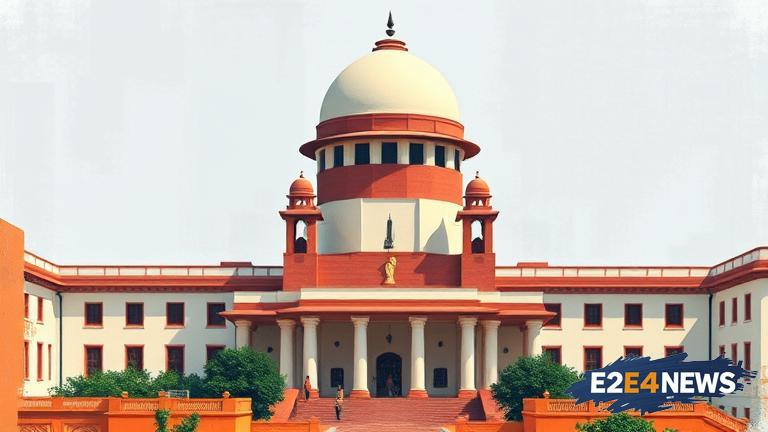The Supreme Court of India has recently expressed its displeasure over the delay in pronouncing reserved judgments by various High Courts across the country. This move is seen as a significant step towards ensuring that justice is delivered in a timely manner. The apex court has been critical of the practice of reserving judgments for extended periods, which often leads to delays and denies justice to the parties involved. The Supreme Court has emphasized that the practice of reserving judgments should be used sparingly and only in exceptional cases. The court has also directed the High Courts to ensure that reserved judgments are pronounced within a reasonable timeframe. The issue of delayed judgments has been a long-standing concern in the Indian judiciary, with many cases pending for years. The Supreme Court’s intervention is expected to bring about a significant change in the way judgments are delivered. The court has also asked the High Courts to provide explanations for the delay in pronouncing reserved judgments. The move is seen as a step towards increasing transparency and accountability in the judiciary. The Supreme Court has also emphasized the need for efficient case management and timely disposal of cases. The court has directed the High Courts to take steps to reduce the pendency of cases and ensure that justice is delivered quickly. The issue of delayed judgments has been a major concern for litigants, who often have to wait for years for a verdict. The Supreme Court’s move is expected to bring about a significant reduction in the pendency of cases. The court has also asked the High Courts to ensure that the parties involved in a case are informed about the status of the judgment. The Supreme Court has emphasized that the right to a speedy trial is a fundamental right, and it is the duty of the judiciary to ensure that this right is protected. The court has also directed the High Courts to take steps to reduce the backlog of cases. The move is seen as a significant step towards improving the efficiency of the judiciary. The Supreme Court has also emphasized the need for the use of technology to improve the efficiency of the judiciary. The court has directed the High Courts to use technology to manage cases and reduce the pendency of cases. The issue of delayed judgments has been a major concern for the Indian judiciary, and the Supreme Court’s move is expected to bring about a significant change. The court has also asked the High Courts to ensure that the judgments are pronounced in a transparent and fair manner. The Supreme Court has emphasized that the judiciary must ensure that justice is delivered in a timely and fair manner. The move is seen as a significant step towards improving the credibility of the judiciary. The Supreme Court has also directed the High Courts to take steps to improve the infrastructure of the courts. The court has emphasized that the infrastructure of the courts must be improved to ensure that justice is delivered efficiently. The issue of delayed judgments has been a major concern for the Indian judiciary, and the Supreme Court’s move is expected to bring about a significant change. The court has also asked the High Courts to ensure that the parties involved in a case are treated fairly and with respect. The Supreme Court has emphasized that the judiciary must ensure that the rights of all parties are protected. The move is seen as a significant step towards improving the fairness and transparency of the judiciary. The Supreme Court has also directed the High Courts to take steps to reduce the cost of litigation. The court has emphasized that the cost of litigation must be reduced to ensure that justice is accessible to all. The issue of delayed judgments has been a major concern for the Indian judiciary, and the Supreme Court’s move is expected to bring about a significant change.
